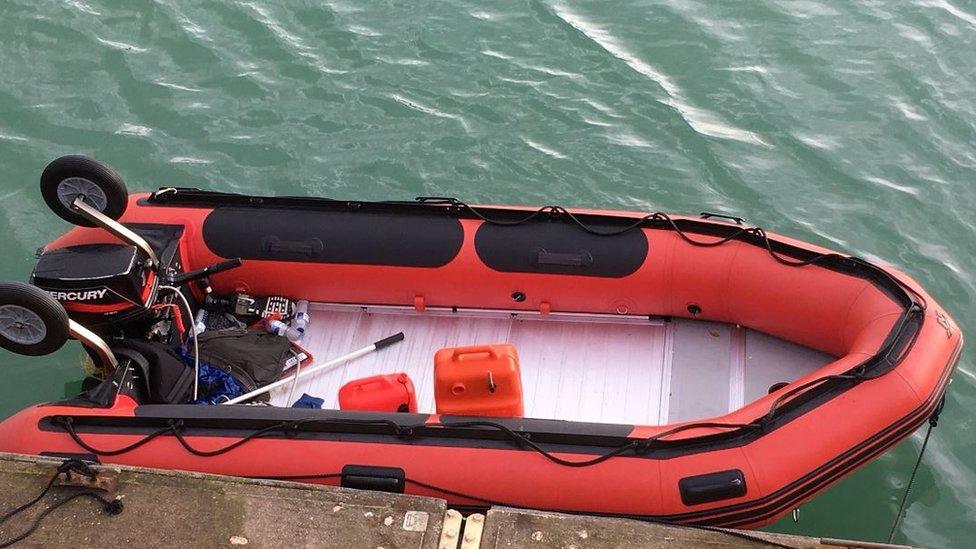Channel migrants: Two boats found after 86 attempted crossing
- Published
The RNLI carried 12 migrants to Ramsgate - This video has no sound
Two boats carrying 21 migrants have been intercepted off the Kent coast after a record 86 made the crossing in one day.
One man was airlifted to hospital from a dinghy which was carrying 13 people, including three children.
A second vessel carrying eight men was intercepted and taken to Dover.
Eighty-six people were detained by Border Force on Tuesday. It is thought to be the highest number of migrants to make the crossing in one day.
The dangers faced by migrants who cross the Channel

At the scene
Colin Campbell, BBC News, on the French coast
Inflatable dinghies depart from beaches that stretch from Dunkirk in the east to Boulogne in the west, with some going further afield to avoid detection.
A stretch of coast spanning 60km, its wide, lengthy sandy beaches conceal small coves and bays. Most have discreet access from quiet roads, providing the perfect launching sites for small boats.
Vessels are launched late at night and in the early hours, with migrants saying the people-smugglers charge £3,000 to £5,000 per person.
Sometimes migrants walk to Calais beaches from migrant camps where they sleep in tents. On occasion smugglers take them in cars to departure points.
One Iranian man said he'd been in a small boat on six occasions but failed to get to the UK, thwarted by the likes of engine failure, rough seas and police interventions. He said you pay once until you succeed.
Police patrol the beaches and the French insist they are doing all they can, but there are limited resources.
The key for the smugglers is favourable weather conditions - calm seas and a wind that blows towards the UK.

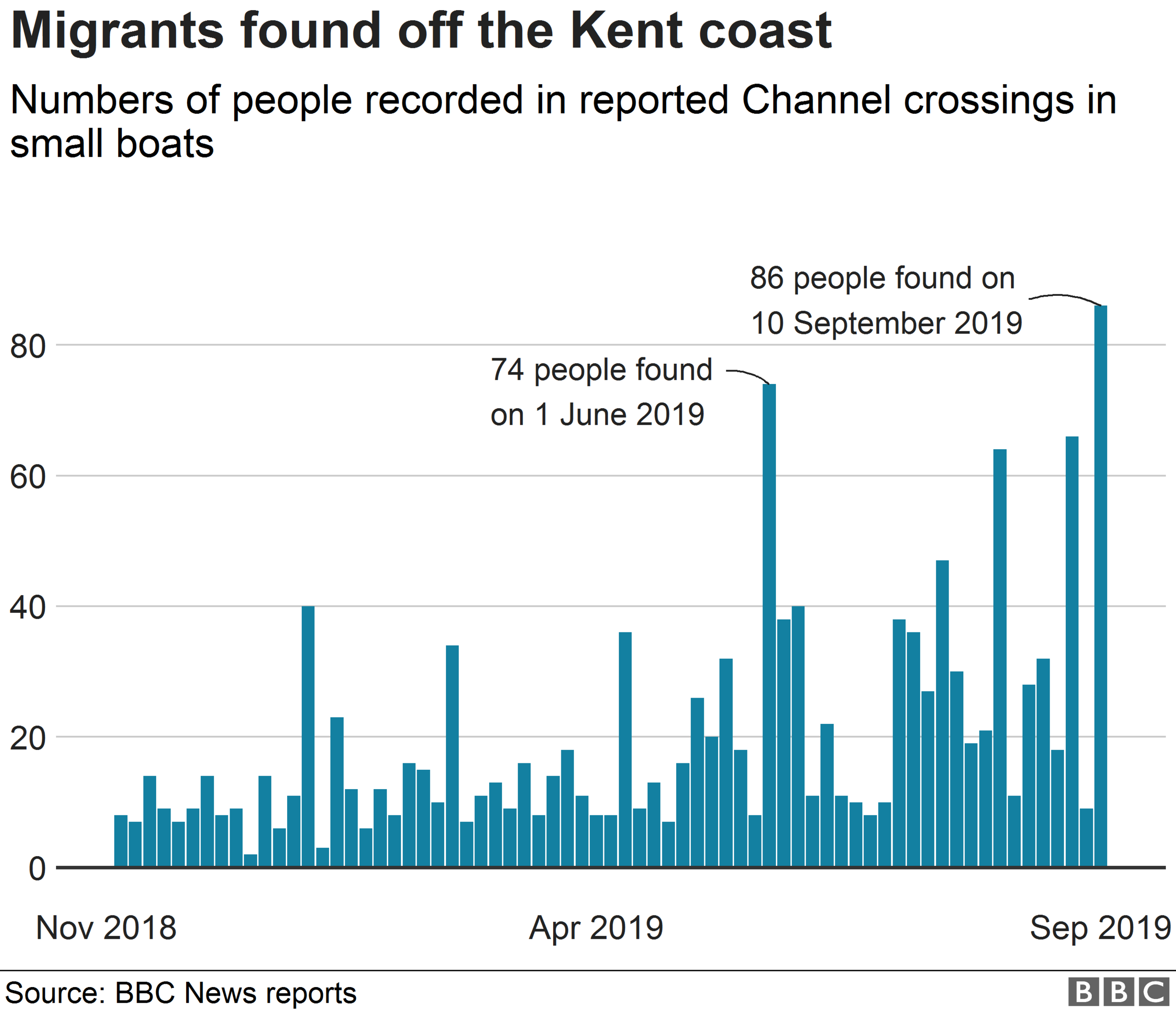
More than 1,200 people have crossed the Channel in small boats this year, with 336 in August.
As numbers peaked on Tuesday, Kent Police confirmed a body found in Dutch waters was that of a female migrant who fell from a boat off the coast of Ramsgate, on 9 August.
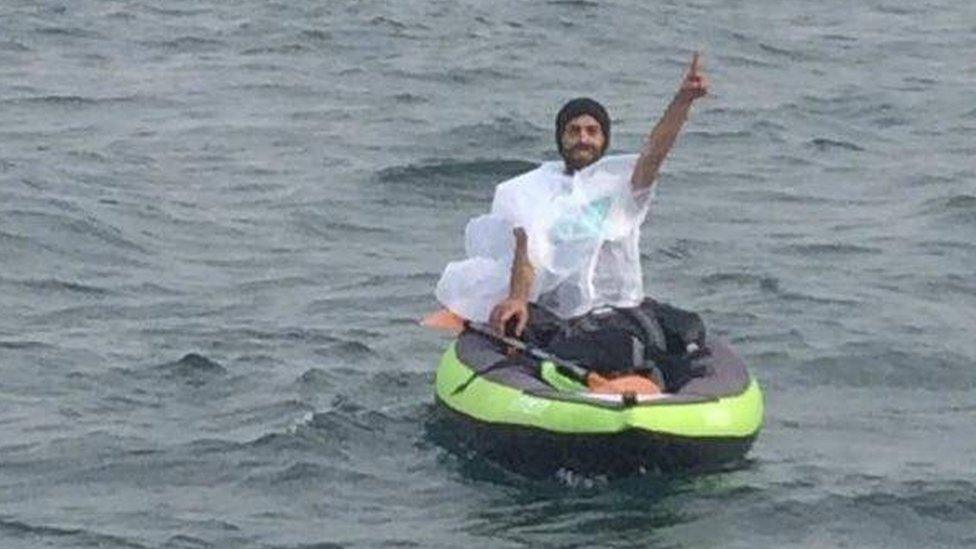
A migrant was seen on board a kayak
French rescue teams also spotted a migrant on board a kayak in the sea off Calais - the man was brought to shore with mild hypothermia on Tuesday evening and dealt with by police, the Prefecture Maritime de la Manche, external said.
Overnight, 51 migrants who were seeking to cross the Channel were detained on beaches in Calais, according to French police. A local gendarmerie spokesman said the figure did not include any migrants who had been rescued at sea.
Meanwhile, thermal-imaging cameras show attempts by migrants to break into UK-bound lorries in Calais continue in earnest after nightfall.
Charities believe that the threatened closure of a disused Dunkirk gym will lead to a further rise in crossings.
Estimates put the number of people sheltering there at between 600 and 1,000.
Care4Calais founder Clare Moseley said she had been told police would clear the camp tomorrow, adding: "It's not that they are not trying to cross now, because they are, but it can only make it worse."
Calais MP Pierre-Henri Dumont said migrants were being pressured into using small boats by smugglers, who were spreading "fake news" about crossings becoming more difficult after Brexit.
The UK's asylum system should be changed to allow migrants to apply at British embassies in Europe, he said.
Attempts to cross the English Channel
86migrants found on 10 September
725total arrivals between January and July 2019
562total attempted crossings in 2018
A note on terminology: The BBC uses the term migrant to refer to all people on the move who have yet to complete the legal process of claiming asylum. This group includes people fleeing countries affected by war, who are likely to be granted refugee status, as well as people who are seeking jobs and better lives, who governments are likely to rule are economic migrants.
- Published10 September 2019
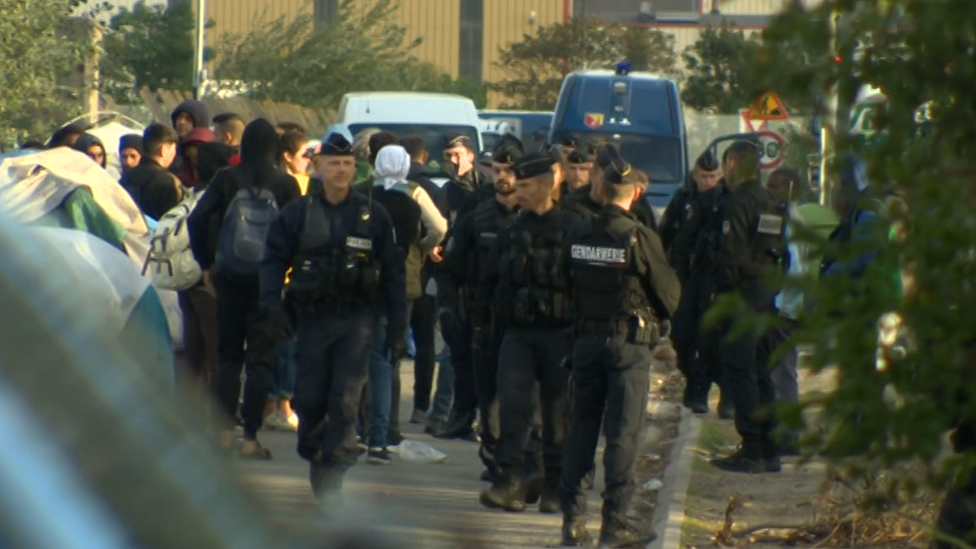
- Published1 September 2019
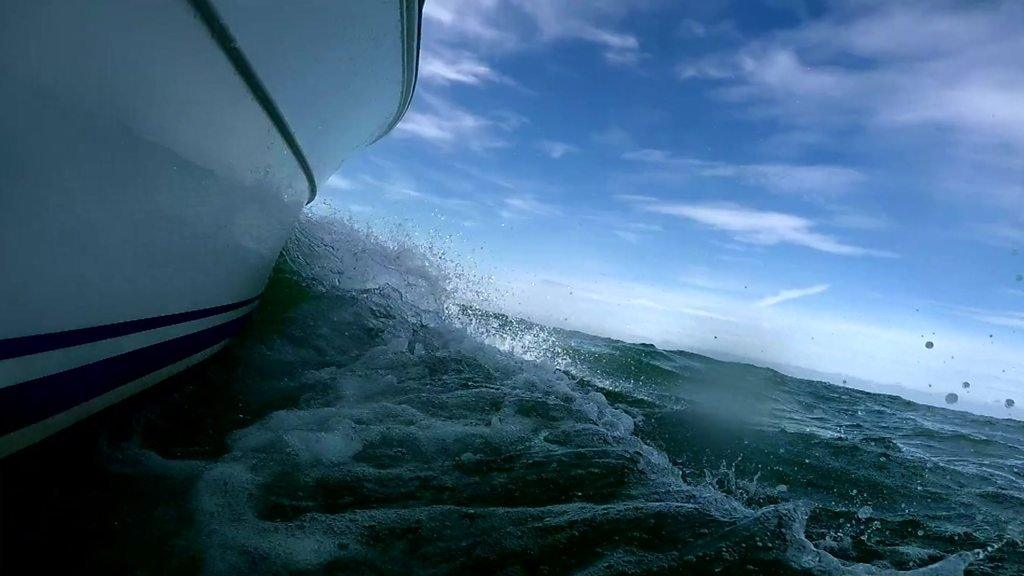
- Published29 August 2019
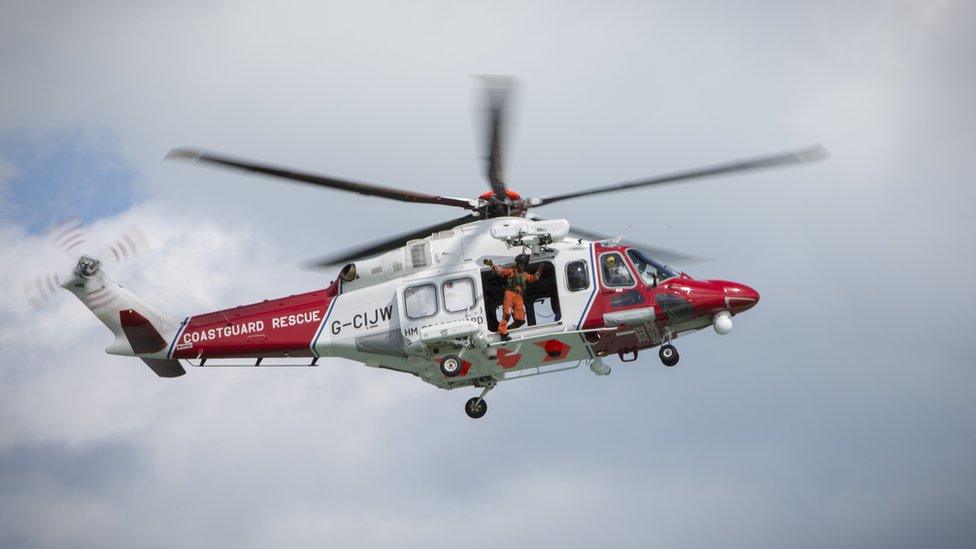
- Published26 November 2018
